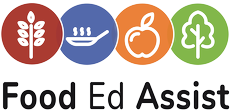Watch this video about how the Stephanie Alexander program has impacted students’ food knowledge and skills:
Key Knowledge 4.1.1
Contexts for gaining food knowledge and skills.
Key Knowledge 4.1.2
The principles of evidence-based research used in the development of the Australian Dietary Guidelines and Australian Guide to Healthy Eating and their application in response to contemporary food fads, trends and diets.
Key Skills 4.1.3
Analyse the nutritional efficacy of contemporary food fads, trends and diets.
Key Skills 4.1.6
Demonstrate understanding of the healthy eating recommendations of the Australian Guide to Healthy Eating by applying them to food selection, planning and preparation.
VCE Food Studies Study Design p. 25 and 26, Please note: Extracts from the VCE Food Studies Study Design (2023-2027) reproduced by permission; © VCAA. VCE is a registered trademark of the VCAA. The VCAA does not endorse or make any warranties regarding this study resource. Current VCE Study Designs and related content can be accessed directly at www.vcaa.vic.edu.au. Readers are also advised to check for updates and amendments to VCE Study Designs on the VCAA website and via the VCAA Bulletin and the VCAA Notices to Schools.
Terms and Definitions
Watch this video about a couple who attended a My Smart Garden program workshop:
Watch this commercial that was part of the Live Lighter campaign:
Watch this video to learn more about the Vic Kids Eat Well program in Victoria:
Watch this video to find out about fad diets:
Watch this video about how to identify a fad diet:
Learning Activities
Click here to dowload the learning activities:









